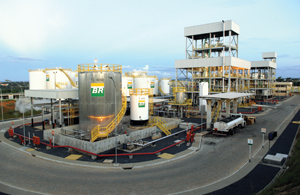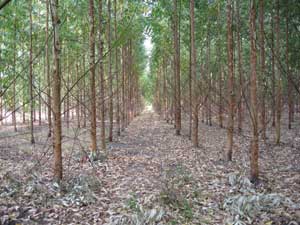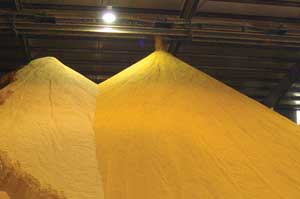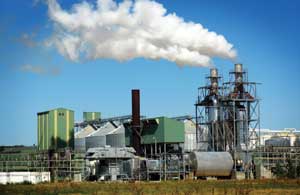November 2009
 View Full Print Edition
View Full Print EditionBusiness Briefs
Columns

Giving Thanks
By Bob Dinneen

Change is in the Air
By Mike Bryan
HYBRID FUELS
By Ron Kotrba
Where Do We Go from Here?
By Michael McAdams
Pyrolysis Oil Challenges and Solutions
By Roman Wolff
Green Means Go for Patents
By Adonis Neblett and Todd Taylor

Battle Looms for Future of Biomass-Based Diesel
By Jason Burroughs
Featured

Coming Up Short
By Kris Bevill
As the U.S. EPA ponders comments submitted in response to its proposed rule for the second stage of the renewable fuel standard, cellulosic biofuel producers wonder how they will produce enough fuel to meet a 2010 mandate, and what will happen to the industry if they don't.

Public-Private Partnerships
By Erin Krueger
In an effort to deploy new technologies and create local jobs, some public and private entities are teaming up to establish mutually beneficial relationships.

The Project of a Lifetime
By Ron Kotrba
Raphael "Ray" Katzen dedicated his life to achieving commercial-scale cellulosic ethanol production from a variety of feedstocks at a competitive price. The following article, which first appeared in the Feb. 2006 issue of EPM, highlights the lasting impact he had on the industry.

Performance Management System a Valuable Tool
By Micki Debbrecht

Big Oil's Big Entrance
By Craig A. Johnson
Oil companies were noticeably absent during the ethanol industry boom from 2004 to 2007. Now, as some of those first-generation ethanol plants struggle to survive, Big Oil has begun to take an interest.

Beyond Cellulosic
By Erin Krueger
While cellulosic technologies receive the most attention as related to scale-up of next-generation ethanol production, other technologies are also being developed to meet future advanced biofuel mandates.
How catalytic approaches are being adopted by biobased chemical companies to accelerate product development
Local feedstock opportunities mean a diverse, ever-promising biorefining industry
A Broken Guarantee
By Erin Krueger
Why biorefinery projects may not be afforded a loan guarantee

U.K. Accounting for Sustainability
By Susanne Retka Schill
The United Kingdom's Renewable Transport Fuel Obligation gives a glimpse of the future.

The Interconnectedness of Sustainability
By Susanne Retka Schill
Sustainability, the new buzz word, is likely to become the litmus test for biofuels. Biodiesel Magazine explores the sustainable dimensions of the American biodiesel industry.

South American Expansion
By Nicholas Zeman
Argentina and the EU are set for a trade showdown as the Brazilian demand floodgate bursts open. Plus, the Tupi oil discovery draws attention, biodiesel provides an alternative to narcotics production, and millions of dollars in credit opens for family farmers.

The Main Rotation
By Nicholas Zeman
Quality issues during biodiesel production typically revolve around distillation additives, process technologies and ASTM methods at the refinery level. A new emphasis, however, is being focused on the field, where biodiesel feedstocks such as canola are grown and harvested. A Canadian team is examining how to tweak environmental and agronomic conditions for a superior biodiesel feedstock.
Contributions

Filling a Need: Forest Plantations for Bioenergy in the South
By Ronalds Gonzalez, Jeff Wright and Daniel Saloni
The growing number of renewable energy projects in the Southern U.S. utilizing woody biomass will require the development of short-rotation bioenergy plantations.

Organic Acids Yield Advantages
By Renata Urbaityte
Organic acids and acidifiers are powerful tools that can provide one more barrier to disease transmission in large feeding installations.

Algae: cleaning up biofuels
By Sam A. Rushing
The role of algae as a component of a successful carbon sequestration program is gaining interest in the biofuels industry.
Minnesota Project releases biofuels update
By Craig A. Johnson




